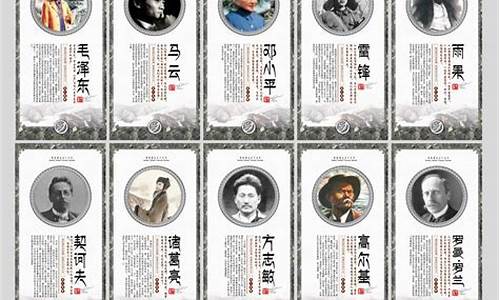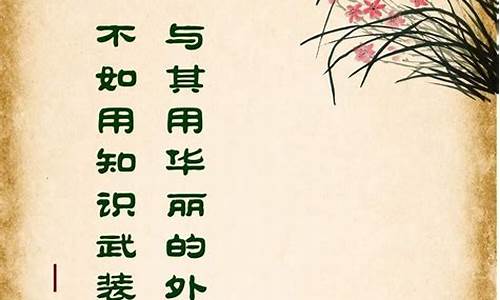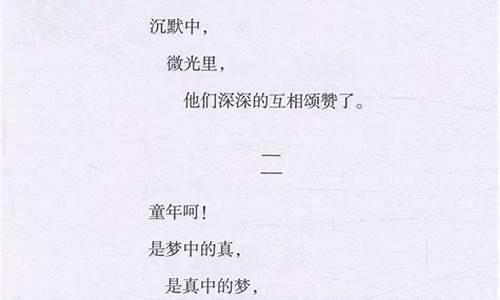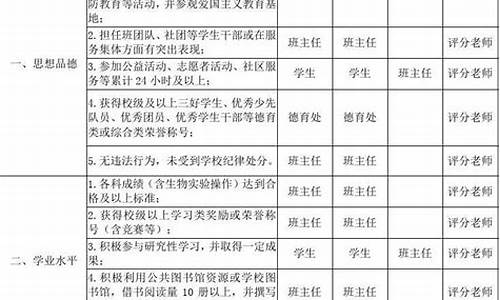英语完成时句子_英语完成时的句子
1.英语造句 用现在完成时造5个句子句子里包括肯定,否定,疑问
2.我现在需要10个现在完成时的英语句子~
3.英语句子 关于现在完成时 的句子 共12个 各位高手帮解答 一下 悬赏50 好的话追加 一定要保证正确 急啊
4.现在完成时的句子
5.要英语 现在完成时 详细讲解

1.过去完成时用于表示截至过去的某一时刻已经完成的动作。比如“(昨天)等我到那儿时大家都已经走了”中,“大家都走了”就是截至“我到那儿时”这个过去时刻已经完成的动作。
英语过去完成时的结构:主语+ had + 过去分词 + 其他成分。例如上面的例子的英文就是:
By the time I got there, they had all gone.或: They had all gone by the time I got there.
2.现在完成时用于表示截至目前(此时此刻)已经完成的动作。比如:“你写完作业了吗?”这句话中,提问者是要了解截至目前“你”是否已经“写完了”。
现在完成时的英文结构是:主语+he(或has)+其他结构。例如: “你写完作业了吗?”的英文是: he you finished your homework (yet) ?
英语造句 用现在完成时造5个句子句子里包括肯定,否定,疑问
1) They go to work by bike every day.
2) Does the moon move around the sun? Yes, it does.
3) He doesn't love sports.
4) We are all teachers from the country.
5) The children don’t he enough food in Africa.
6) Do you go to see your uncle every other day?
(2)现在进行时
1)They are showing us around the farm.
2)Are the students reading now?
3)It isn't raining hard.
4)We are leing on Friday.
(3)现在完成时
1)How many words he you learnt today?
2)He hasn't got up yet.
3)I he been to England.
(4)现在完成进行时
1)I've been sitting here all day.
2)Has it been raining for three days? Yes, it has.
3)We he not just been talking about you.
(5)一般过去时
1)My mother wasn't in last night.
2)We didn't watch TV last night.
3)The girl cried just now.
4)We were middle school students last year.
5)Were you at home last night? Yes, I were.
6)Did you wash clothes last night? No, I didn't.
(6)过去进行时
1)I was reading at night yesterday morning.
2)We weren't planting trees this time yesterday.
3)Were they singing when the teacher came? Yes, they were.
(7)过去完成时
1)He said he hadn't collected 300 stamps.
2)Had you learnt 280 new words by the end of last month ?
3)When I rushed to the cinema, the film had begun.
(8)过去将来时
1)He said his mother would buy a bike for him
2)My brother told me he wouldn’t believe Jack any more.
3)Would it be all right if he knew his illness?
(9)一般将来时
1)When will you be able to visit us again?
2)I won't be free tonight.
3)My sister will finish her middle school this year.
(10)将来完成时
1)We will he finished our middle school next July.
2)Will he he finished writing the novel by the end of next month? Yes, he will.
3)We won't he finished the job when you turn back.
(11)将来进行时
1)What will they be doing tomorrow evening?
2)It won't be long before we will be making such a good train.
3)I won't be leing until 12.
我现在需要10个现在完成时的英语句子~
1. I he just washed my clothes.
2. He you finished doing your homework?
3. They hen't cleaned the classroom yet?
4. He you ever been to Beijing?
5. She has taught English for two years.
英语句子 关于现在完成时 的句子 共12个 各位高手帮解答 一下 悬赏50 好的话追加 一定要保证正确 急啊
1.I he answered the quesion .
2.The quesipn has been solved .
3.Computer has been invited for many years.
4.He you been to the USA?
5.He has gone to home.
6.My mother has been to Canada.
7.Sally has just moved to our town.
8.I he studied English for 10years.
9.Our schoold has been built since 1864.
10.Your sister has gone to USA
现在完成时的句子
1 We hen't seen him for one year.
2 We he leaened only five lessons so far.
3 I he already written three letters this morning till now.
4 The car has come.
5 He lost that book.
6 He you ever seen a cat with white ears?
7 I he eaten dumplings before.
8 Has the train come?
9 They he just finished the work.
10 This woman has never heard about this story.
11 The plane has just arrived.
12 Has your brother ever seen this film?
无论是语法还是用词都是好好斟酌了的,全部都符合你要求的完成时态。希望对你有帮助。O(∩_∩)O~
要英语 现在完成时 详细讲解
1.Great changes he taken place in China In the past ten years.
2.I he just eaten two les.
3.Li Gang has written three novels since 2006.
4.I he done two part-time jobs.
5.I he had a job interview today.
6.My father has been to Beijing twice.
7.The manager has just left.If only you had come a little earlier.
8.I he just come back from France
9.It can't be John.He has gone to town.
10.I he learnt/learned English for 11 years.
以上全是动词的不规则的形式,要写出它们的原形、过去式、过去分词吗?你可以在课本上的附件里查到的。
望尽快纳,谢谢!
一、现在完成时的构成
(一)肯定式
主语+助动词he /has +过去分词+其它
说明:这里的he /has是助动词,没有什么具体意义。当主语是第三人称单数时助动词用has,其余人称一律用he。 has,he的缩略式分别为's或've。规则动词过去分词的构成与过去式的构成方式一样,不规则动词可参看不规则动词表。实例:
1)I've just copied all the new words .我刚抄写了所有的生词。 (表示不要再抄了)
2)She has lost her books .她丢失了她的书。 (表示到目前为止还没有找到)
(如果用过去时:She lost her books . 则强调书是过去丢的这一动作,而不知现在有没有找到)
3)We've just cleaned the classroom .我们刚好打扫了教室。(表明现在教室是干净的)
(二)否定式
主语+助动词he /has+not+过去分词+其它
说明:现在完成时构成否定句时,只需在助动词he /has后面加not就行。he not,has not的缩略式分别为hen't ,hasn't。另外,肯定句中有some,already时,改为否定时要分别改成any,yet。实例:
1)I hen't finished my homework yet.我还没有完成我的作业。
2)She hasn't trelled on a train .她没有坐火车旅行过。
3)We he never spoken to a foreigner.我们从来没有和外国人说过话。
注:有时not可以用never代替,表示“从来没有”的意思。又如:
4)I he never seen him before.以前我从来没有见过他。
(三)一般疑问式
助动词He /Has +主语+过去分词+其它 ?
说明:把陈述句中的he或has放到句首,句末打问号,同时把句中的some ,already改为any ,ye t就构成了一般疑问句。肯定回答用“Yes ,主语+he/has.?否定回答用“No,主语+hen't/hasn't.”有时也可以用“No,not yet./No ,never./No,not even once.”等。实例:
1)—He you ever made dumplings ?你曾经做过饺子吗?
—Yes ,I he .是的,我做过。
2)—Has she ever been abroad ?她曾经出过国吗?
—No,never.不,从来没有。
3)—He they found the lost books yet ?他们已经找到了丢失的书吗?
—Yes ,they he.是的,他们找到了。
注意:当句中有否定词not ,hardly(几乎不),never的时候,在改为反意疑问句时,附加部分用肯定形式。例如:You he never come to our school ,he you ?你以前从来没有来过我们学校,是吗?
二、现在完成时的用法
(一)现在完成时的用法1:表示过去发生或已经完成的某一动作对现在造成的影响或结果。此时,常与时间副词already(已经) ,yet(还、已经) ,just(刚刚、仅仅) ,ever(曾经) ,never(从不) ,before(以前)等连用。这几个副词的用法如下:
1.already意为“已经”,通常用于肯定句中,可放在助动词之后,过去分词之前,也可以放在句末。实例:
1)I've already read this book. 我已经读过这本书了。
(“读”这一动作发生在过去,对现在造成的影响是“知道书中的内容”。
2)I've washed my clothes already.我已经洗了衣服。
(洗衣服的动作已完成,其结果是“衣服冼干净了”。)
注意:在表示吃惊或明知故问等感彩时,already也可用于(口语)疑问句中。实例:
3)He you met him already ?你(真的)已经见过他了?
2.yet用在疑问句中意为“已经”,用在否定句中意为“还”,常放在句末。实例:
1)—Has he found his watch yet ?他已经找到他的手表了吗?
—No,not yet.不,还没有。
2)The woman hasn't found her dog yet .
那位妇女还没有找到她的狗。(没找到狗,心里着急,这就是对现在的影响)
3.just意为“刚刚”,表示行为刚刚过去,常放在助动词与过去分词之间。实例:
He has just come back from school .他刚从学校回来。
4.ever意为“曾经”,用于疑问句或否定句中,放在助动词与过去分词之间。实例:
1)He you ever been to Hong Kong ?你曾去过香港吗?
2)I hen't ever spoken to her.我未曾和她说过话。
5.never意为“从来没有”常与before连用(before要放在句尾,而never多放在助动词与过去分词之间。实例:
I he never trelled by plane before.我以前从来没有乘飞机旅行过。
6.before意为“以前”,指过去不确定的某个时间,总是放在句末,不受句型的限制。实例:
1)He you been to Hainan before ?你以前去过海南吗?
2)I hen't eaten Guangdong food before.我以前没吃过广东菜。
(二)现在完成时用法二2——持续性用法(肯定句,疑问句中谓语动词必须是延续性动词):表示过去已经开始,持续到现在的动作或状态。此时常与“for +一段时间?或“since+过去的点时间或从句(从句用一般过去时)以及so far(到目前为止)等时间状语连用。
for + 段时间
since +点时间
实例:
1)I've lived here since 1990.自从1990年以来我就住在这里。
= I've lived here since 13 years ago.
= I've lived here for 13 years.
= It is 13 years since I began to live here.
2)I hen't seen him for three years .我三年没有看见他了。
= I hen't seen him since three years ago
= I hen't seen him since 2000.
= It is 3 years since I saw him last time.
3)Mr Wang has worked in the factory since he came to the city .
自从到这个城市以来,王先生一直在这家工厂工作。
4)She's been at this school since five years ago.
自从五年前以来她就在这个学校。
注意:①在这类句子的肯定句和疑问句中谓语动词必须用延续性动词。短暂性动词由于动作不能持续,故不能与for(达到;累计)或since(自从。。。到现在)引出的时间状语连用。
②对for和since引导的时间状语提问要用How long
1) 他入团两年了。
误:He has joined the League for two years.
正:He has been a League member for two years.
2)我买这辆自行车三年了。
误:I he bought this bike for three years.
正:I he had this bike for three years.
2) ▲部分短暂性动词与之对应的延续性动词:
短暂性动词 延续性动词
die → be dead
borrow → keep
buy/catch → he
get up → be up
come → be in
finish → be over
leer → be away
open → be open
close → be closed
begin → be on
become interested in → be interested in
有人可能会问:一般过去时和现在完成时所表示的动作都发生在过去,那么这两种时态有什么区别呢?
☆答:①一般过去时与具体的表示过去时间状语如:yesterday连用;强调动作在过去发生,与现在无关。
②现在完成时与自已的特征词连用,强调过去发生的动作对现在的影响或过去开始发生一直持续到现在的动作。
例: He saw the film last night. (过去时,表示他昨晚看过那部**了,现在不知还要不要再看一次)
He has (ever) seen the film before.(现在\完成时,表时他已看过那部**,现在不想再看了)
用于现在完成时的句型
1)It is the first / second time…. that…结构中的从句部分,用现在完成时。
It is the first time that I he visited the city.
It was the third time that the boy had been late.
2)This is the… that…结构,that 从句要用现在完成时.
This is the best film that I've (ever) seen.
这是我看过的最好的**。
This is the first time (that) I've heard him sing. 这是我第一次听他唱歌。
声明:本站所有文章资源内容,如无特殊说明或标注,均为采集网络资源。如若本站内容侵犯了原著者的合法权益,可联系本站删除。











